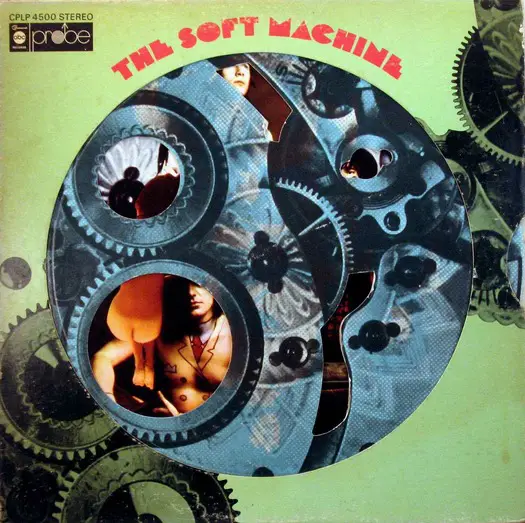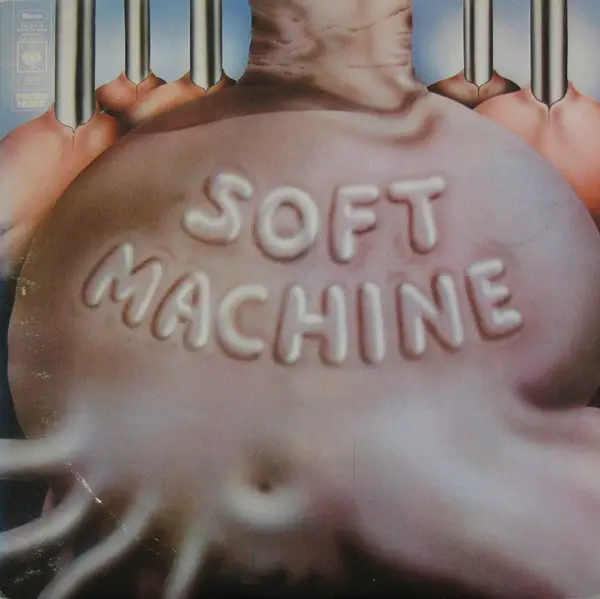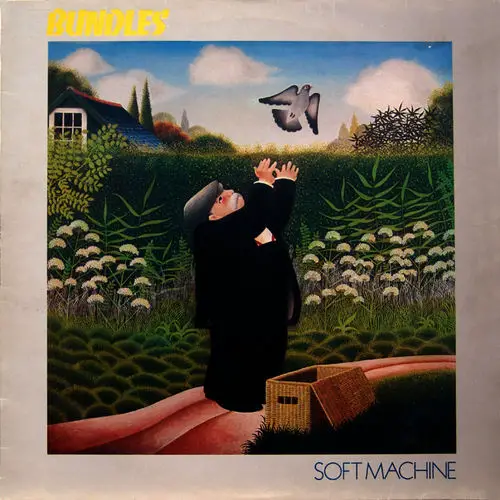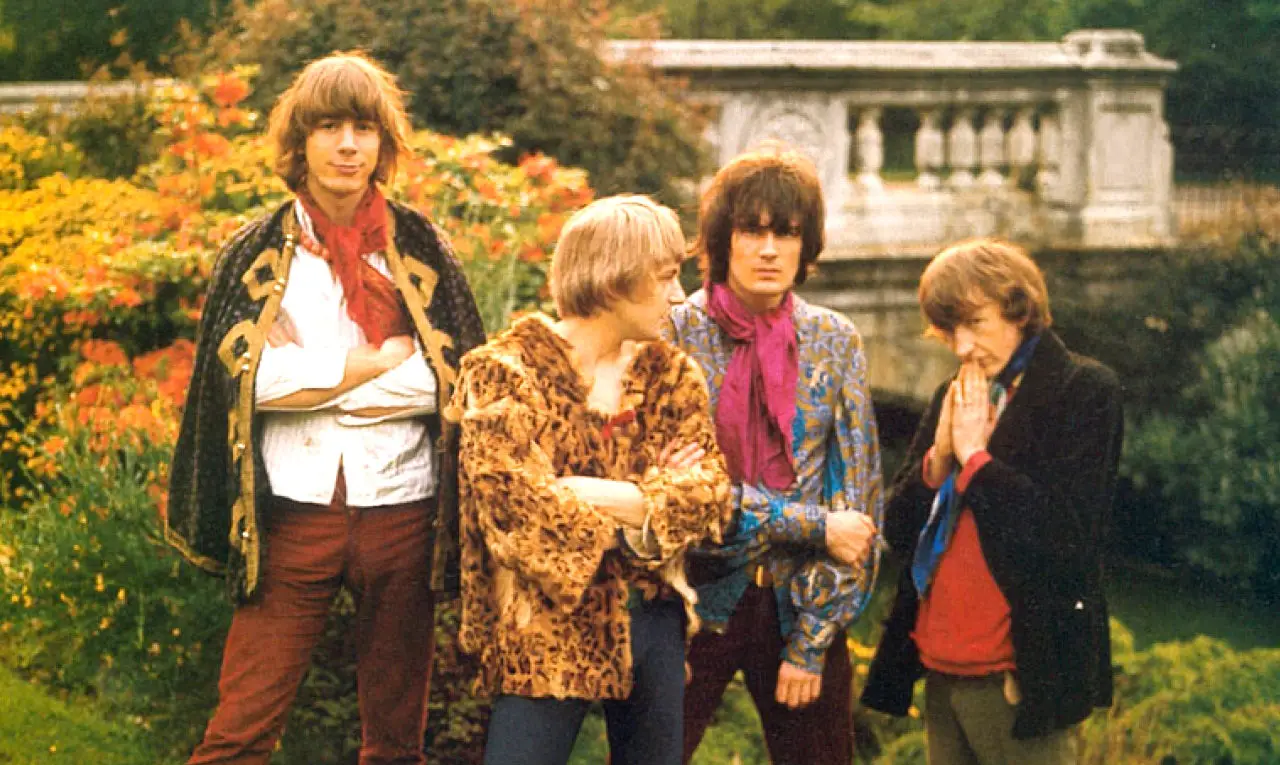The Soft Machine Songs Ranked
Soft Machine is an English rock band from Canterbury formed in mid-1966, currently consisting of John Marshall (drums), Roy Babbington (bass), John Etheridge (guitar), and Theo Travis (saxophone, flutes, keyboards). As a central band of the Canterbury scene, the group became one of the first British psychedelic acts and later moved into progressive and jazz-rock. Their varying lineups have included prominent former members such as Mike Ratledge (organ, 1966–76), Robert Wyatt (drums & vocals, 1966–71), Kevin Ayers (bass, guitar & vocals, 1966–68), and Hugh Hopper (bass, 1969–1973). Here are all of The Soft Machine songs ranked.
Listen and enjoy the music of The Soft Machine. Click below as you relive the songs of the hottest English rock band.
10. Slightly All the Time (Third, 1970)
“Slightly All the Time basically collects some compositions, from slow to fast. The winds and horns are created big roles, drawing comparisons to King Crimson, but of course, the guitar is still absent.”
9. A Certain Kind (The Soft Machine, 1968)
“A Certain Kind, a Hugh Hopper song. I don’t know why he’s not in the band at this point because he has a hand in most of the writing. Speeded up and presented differently this could have been a r ‘n b standard but the Softs turn it into an effective mood piece.”
8. We Did It Again (The Soft Machine, 1968)
“On We Did It Again, Ayers gets a chance to sing and he does so again and again and again pushing the song almost beyond category! Then he recites his poetry over the ebb and flow of Why Are We Sleeping but there are problems of sloppy mixing and bad sound.”

7. Soft Space (Alive & Well: Recorded in Paris, 1978)
“Soft Machine goes Disco! Seriously. It sounds like something Giorgio Moroder would produce. You can almost hear Donna Summer’s “I Feel Love” vocals over top of it.”
See more: The Soft Machine Albums Ranked
6. Facelift (Third, 1970)
“Facelift” is a “schizoid” experimental live piece, stitched together from at least two different gigs (you notice it clearly); the sound quality is not very good, a bit muddy sometimes with some shrieking at others, the sound levels are not constant; the composition itself feels messy sometimes; nonetheless there’s some very good playing in here and even some pastoral flute by Lyn Dobson”
5. Love Makes Sweet Music (The Soft Machine, 1968)
“This is a mix of British Psychedelia and Garage rock either way it is great. Robert Wyatt sounds a little like a John Lennon here as does his uh huh huh’s in his voice. The music is a little different then the Lads from Liverpool but it is just as refreshing. This is a delightful piece of 60’s nostalgia.”

4. Hope for Happiness (The Soft Machine, 1968)
“The first side of the album, formed by compositions naturally linked to each other as in a suite, opens with the piece Hope for Happiness, the song composed by Brian Hopper many years before the recording of the album: Wyatt, protagonist for the first part of the song, describes dreamlike and suffused atmospheres, based on the hit and response of his voice creating an excellent vocal system, simply accompanied by the drums which slowly introduces the central body of the piece, in which Ratledge takes the reins of the group by rushing into very fast passages and solos with his instrument, well supported by the rhythmic base and accompanied by the voice that duets with him”
See more: Pearl Jam Albums Ranked
3. Why are We Sleeping? (The Soft Machine, 1968)
“Why Are We Sleeping?” is much shorter, and presumably an edited version of the album cut. This is mid-fast pop/psych with a gloomy vibe, some organ, and Vincent Price style vocals.
2. Out-Bloody-Rageous (Third, 1970)
“Out Bloody Rageous is an excellent overview from Soft Machine’s classic years and is the only place to find their early single “Love Makes Sweet Music”/”Reelin Feelin Squeelin.” Disc one features their classic dadaistic brand of rock with Robert Wyatt on drums and vocals while disc two features their more jazz oriented line up. Most of the tracks have been remastered to offer excellent sound quality, though the single has been mastered from a vinyl source due to missing master tapes. Recommended for those familiar with the Soft Machine as well as devoted fans.”

1. Moon in June (Third, 1970)
““Moon in June” is RW’s track; the only sung track here, it goes from peaceful balladry to experimental avant-garde to up tempo jazz-y grooves; apparently it’s all performed by RW himself (I doubt that for the bass parts) and has some violin playing, courtesy of Rab Spall(!).”

